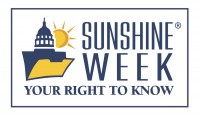Editor’s note: Sunshine Week, March 16-22, 2014, is a national initiative to promote a dialogue about the importance of open government and freedom of information.

A few years ago, I met a longtime source at a local coffee shop in Los Angeles. He said he needed to break some news to me.
I thought it was going to be something juicy. Perhaps he was ready to share some inside information about drones or surveillance or Guantanamo, topics that I report on.
Nope. My source called the meeting to tell me he would no longer spill any secrets to me. He was very worried that the Obama administration’s crackdown on leaks and leakers could result in his arrest and prosecution. I could see the fear in his eyes.

Several months later, other sources I cultivated took the same course of action citing the same rationale. Their fears were justified as we learned last year when it was revealed that the Justice Department secretly obtained phone records from Associated Press reporters and editors in an attempt to track down the wire service’s source, who was later sentenced to federal prison.
How could I continue to inform the public about these pressing issues if my sources were unwilling to speak?
I turned to the Freedom of Information Act for answers. Through my aggressive use of FOIA over the past three years I have been able to obtain documents on a wide-range of issues and have minimized the use of anonymous sources in my reporting.
For example, last summer, I obtained a military investigative report that showed there was a widespread breakdown of protocols at the Guantanamo Bay detention facility that resulted in the death of a detainee, which was the catalyst behind the mass hunger strike.
The National Security Agency, in response to another FOIA request I filed last June, turned over to me its official talking points prepared in the aftermath of leaks Edward Snowden made to The Guardian and Washington Post on the agency’s controversial surveillance programs.
The talking points revealed that top NSA officials were instructed to cite 9/11 as a key “sound bite” to justify its vast spying activities. The response to this story, and other reports I wrote based on government documents obtained via FOIA, taught me that the public craves primary source material in the form of documents.
I often hear complaints from my colleagues that the FOIA process is tedious and by the time they receive documents the information appears stale. So they rarely use FOIA. But there are ways to speed up the process. Reporters are in a unique position in that their status as representatives of the media allows them to request expedited processing from a government agency as long as they can make a compelling case as to why the information is urgently needed. Additionally, a little known provision in the FOIA law allows all requesters to obtain an estimated date of completion from an agency so they can get can a sense of when records may arrive.
While FOIA remains imperfect and Congress is currently working on legislation aimed at further strengthening the law, requesters should be aware that writing a strong FOIA request could be the difference between receiving responsive records from a government agency and a flat-out denial, depending on the subject matter.
FOIA is by no means a replacement for old-fashioned gumshoe reporting. I still meet with my national security sources on a regular basis. But in lieu of leaks FOIA remains one of the most valuable tools in my reporting arsenal.
Jason Leopold is an investigative reporter covering Guantanamo, counterterrorism, national security, human rights, open government and civil liberties issues. He’s been called a “FOIA Terrorist” by federal employees for his aggressive use of the Freedom of Information Act, which included suing the FBI and forcing the agency to changes its policies. You can subscribe to Leopold’s “Lessons in FOIA Terrorism” on Beacon Reader.
Click here for more information about Sunshine Week and resources available for reprinting.





